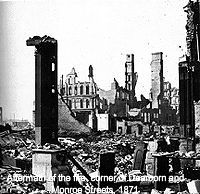Black Prophetic Fire: Cornel West on the Revolutionary Legacy of Leading African-American Voices
President Obama Doesn’t Belong on Any Shirt with Martin Luther King and Malcolm X
The state of Black America in the age of Obama has been one of desperation, confusion and capitulation
Cornel West, Salon
Sunday, Oct 5, 2014 06:59 AM EST
The great irony of our time is that in the age of Obama the grand Black prophetic tradition is weak and feeble. Obama’s Black face of the American empire has made it more difficult for Black courageous and radical voices to bring critique to bear on the U.S. empire. On the empirical or lived level of Black experience, Black people have suffered more in this age than in the recent past. Empirical indices of infant mortality rates, mass incarceration rates, mass unemployment and dramatic declines in household wealth reveal this sad reality. How do we account for this irony? It goes far beyond the individual figure of President Obama himself, though he is complicit; he is a symptom, not a primary cause. Although he is a symbol for some of either a postracial condition or incredible Black progress, his presidency conceals the escalating levels of social misery in poor and Black America.
The leading causes of the decline of the Black prophetic tradition are threefold. First, there is the shift of Black leadership from the voices of social movements to those of elected officials in the mainstream political system. This shift produces voices that are rarely if ever critical of this system. How could we expect the Black caretakers and gatekeepers of the system to be critical of it? This shift is part of a larger structural transformation in the history of mid-twentieth-century capitalism in which neoliberal elites marginalize social movements and prophetic voices in the name of consolidating a rising oligarchy at the top, leaving a devastated working class in the middle, and desperate poor people whose labor is no longer necessary for the system at the bottom.
Second, this neoliberal shift produces a culture of raw ambition and instant success that is seductive to most potential leaders and intellectuals, thereby incorporating them into the neoliberal regime. This culture of superficial spectacle and hyper-visible celebrities highlights the legitimacy of an unjust system that prides itself on upward mobility of the downtrodden. Yet, the truth is that we live in a country that has the least upward mobility of any other modern nation!
Third, the U.S. neoliberal regime contains a vicious repressive apparatus that targets those strong and sacrificial leaders, activists, and prophetic intellectuals who are easily discredited, delegitimated, or even assassinated, including through character assassination. Character assassination becomes systemic and chronic, and it is preferable to literal assassination because dead martyrs tend to command the attention of the sleepwalking masses and thereby elevate the threat to the status quo.





Recent Comments